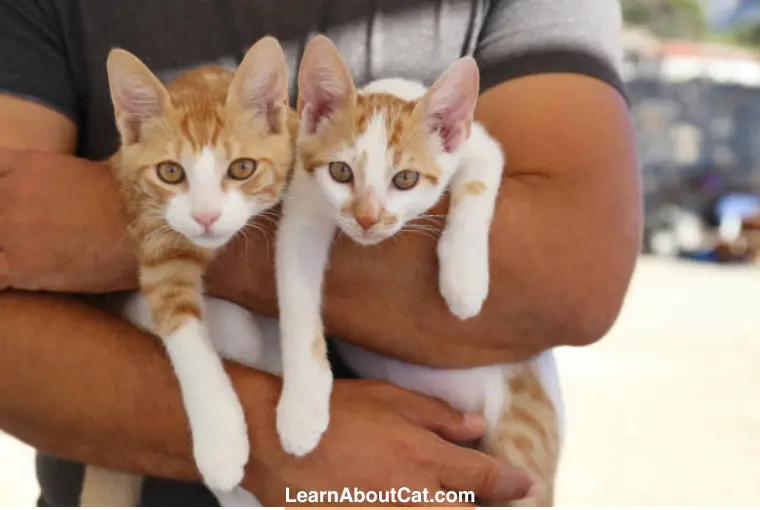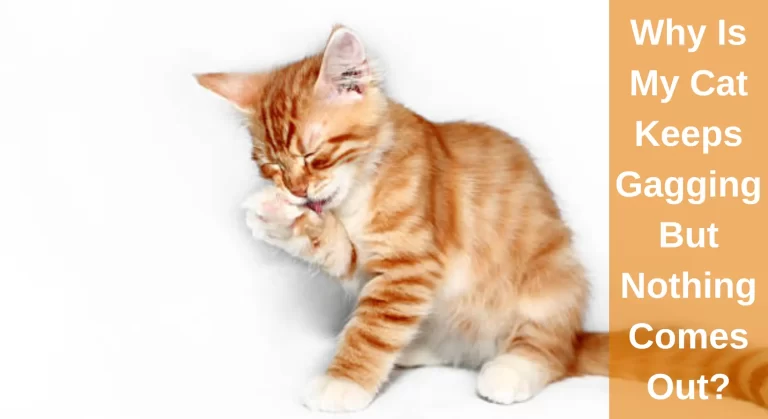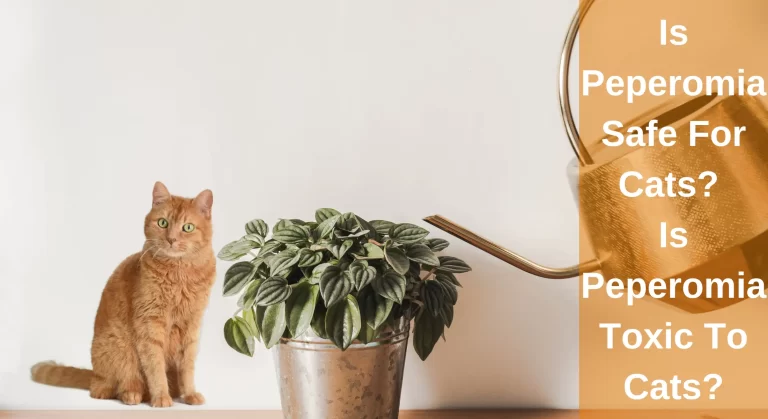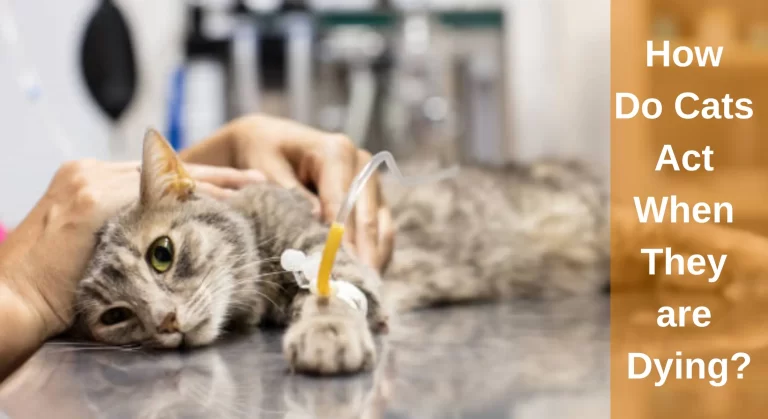Is Cat Breeding Profitable? Cat Breeding 101
Cat breeding can be a fulfilling hobby or even a potential source of income for those who are passionate about feline genetics and responsible breeding practices. If you are a beginner in the field of cat breeding, there are several important things you need to know in order to ensure the health and well-being of both the mother cat and her offspring.
Cat breeding involves mating two cats to produce kittens. Before you start breeding cats, you need to have a good understanding of their genetics, behavior, and health. It is also important to prepare yourself to provide care for kittens until they find new homes.
Cat breeding can be profitable depending on the breed and the breeder’s ability to produce healthy kittens, but it also involves significant costs such as caring for the cats and veterinary expenses.
In this guide, we will cover everything you need to know to get started with cat breeding.

Understanding Cat Breeding
The Basics of Feline Reproduction
Cat reproduction is an important topic to understand before starting a cat breeding business. Cats are seasonal breeders, which means they are only fertile during certain times of the year.
Queens or Female cats go into heat every three weeks, in the breeding season, which typically lasts from the beginning of spring to the end of autumn,
During this time, the queen will display certain behaviors such as increased vocalization, rolling around, and rubbing against objects. Male cats, or toms, will also display certain behaviors such as increased aggression and territorial marking.
Check Out: Do Cats Inbreed? Things Cat Owners Should Know
Cat Breeding Terminology
There are several important terms you need to know when it comes to cat breeding:
- Stud: A male cat used for breeding
- Queen: A female cat used for breeding
- Litter: A group of kittens born to a queen
- Inbreeding: Breeding two closely related cats, which can increase the risk of genetic defects
- Outcrossing: Breeding cats from different bloodlines to increase genetic diversity
Choosing a Cat Breed
When choosing a cat breed to breed, it’s important to consider the breed’s health, temperament, and physical characteristics. You should also research the breed’s potential genetic disorders and consult with a veterinarian or experienced breeder.
Preparing for Cat Breeding
Finding a Reputable Breeder
If you are new to cat breeding, it’s important to find a reputable breeder who can guide you through the process and provide you with healthy, well-tempered cats. You should look for cat breeders who are members of cat breeding associations and who have produced healthy kittens in the past.
Preparing Your Home for a Pregnant Cat
Before bringing a pregnant cat into your home, you’ll need to prepare a comfortable and safe space for her to give birth and care for her kittens. This should include a private area with a bed, and a litter box, and plenty of food and water should be provided.
Understanding the Risks of Cat Breeding
Mother cats and kittens can be at risk from cat breeding. Having an emergency plan and being aware of potential risks can help reduce these risks. These risks can include complications during pregnancy, difficult labor, and genetic disorders.
Pregnancy and Delivery Complications
There are several complications associated with pregnancy and delivery that can be life-threatening for both the mother and the kitten. Dystocia, or difficult birth, can occur if the mother is unable to deliver the kittens naturally.
This can lead to stillbirth or miscarriage, and emergency veterinary care may be required. It’s important to monitor the mother during pregnancy and delivery and to seek veterinary care if any complications arise.
Genetic Defects and Inherited Diseases
Breeding cats increases the risk of genetic defects and inherited diseases. To reduce the risk of passing on genetic conditions to kittens, it’s important that both cats should be screened for genetic disorders prior to breeding.
Testing for common breed-specific diseases is also recommended. Inherited diseases can lead to health issues for kittens and reduced demand for certain breeds.
Overbreeding and Health Problems
Breeding cats too frequently can lead to health problems for the mother and kittens. Overbreeding can increase the risk of infections and illnesses and may reduce the lifespan of the mother and kittens.
It’s important to give the mother adequate time to recover between litters and to limit the number of litters per year to reduce the risk of overbreeding.
Emotional and Financial Costs
Breeding cats can be emotionally and financially draining. It requires significant time, effort, and resources, and can be stressful. The cost of veterinary care, food, and supplies can add up quickly, and the emotional toll of losing kittens or dealing with health issues can be difficult.
Before you begin breeding a cat, it’s important that you should consider its emotional and financial costs.
Impact on Feline Population
Finally, it’s important to consider the impact that breeding can have on the overall feline population. With millions of cats in shelters and rescues across the world, it’s important to carefully consider whether breeding is the right choice.
Responsible breeding practices can help ensure that cats are healthy and well-cared for, but it’s important to be aware of the impact that breeding can have on the feline population as a whole.
The Cat Breeding Process
Mating Your Cats
When cats are ready to mate, they will exhibit certain behaviors such as vocalization and rubbing against objects.
The actual mating process usually takes a few minutes and can result in several mating sessions. It is important to supervise the cats during mating to ensure that they do not harm each other.
Check Out: How To Tell If Cat Mating Was Successful? Sings To Look Out
Recognizing Pregnancy
It can take a queen several weeks after mating to show signs of pregnancy. A proper diet and care are necessary during this time. The delivery process itself may also be complicated, so you need to be prepared for any complications.
Signs of labor include weight gain, increased appetite, and changes in behavior. You can also take your cat to a veterinarian for confirmation of pregnancy through ultrasound or other methods.
Preparing for the Birth of Kittens
As the due date approaches, you’ll need to prepare for the birth of the kittens. This can include setting up a nesting area for the queen, providing plenty of food and water, and having a plan in place for emergencies.
Caring for Newborn Kittens
The First Few Weeks
As soon as the kittens are born, you will need to begin monitoring their health and providing them with the appropriate nutrition and care to support their development.
This can include bottle-feeding if the mother cat is unable to produce enough milk, keeping the kittens warm, and monitoring their weight gain.
Find Out: The Ultimate Guide to – How Much to Feed a Kitten? Ketten Feeding 101
Weaning and Socialization
As the kittens grow, you’ll need to introduce them gradually to solid food and begin the process of socialization.
Providing plenty of mental and physical stimulation to the kittens should include handling and play with them as well as exposing them to new environments and people.
Read More: When Can Kittens Leave Their Mom? Timeline for Weaning Kittens
Health and Vaccinations
Kittens need regular check-ups and vaccinations to ensure they are healthy and protected against diseases. You should consult with a veterinarian to develop a vaccination schedule for your kittens.
It is also a good idea to monitor their behavior and health as well as seek veterinary assistance if necessary.
Finding Homes for Kittens
Once your kittens are old enough, you need to find new homes for them. You can advertise them online, in local newspapers, or through word of mouth.
You should screen potential adopters to ensure that they are responsible and can provide a good home for your kittens.
Is Cat Breeding Profitable?
Cat breeding can be profitable, but it depends on various factors such as the demand for the particular breed, the cost of breeding and raising the kittens, and the competition in the market.

Popular breeds such as Siamese, Persian, and Maine Coon can command higher prices, while less common breeds may have a smaller market and therefore lower prices.
To make a profit, breeders need to ensure that their cats are healthy, well-cared for, and have good temperaments. Moreover, they must have an understanding of the breed and the breeding process in order to produce healthy litters and successful pregnancies.
Additionally, breeders need to invest in quality food, veterinary care, and supplies, which can be costly.
Overall, cat breeding can be profitable, but it requires a significant investment of time, money, and effort. It’s important to do thorough research and consult with experienced breeders to determine if it’s the right choice for you.
Also Check Out: How Many Times Can A Cat Get Pregnant In A Year?
How Much Do Cat Breeders Make?
The income of cat breeders can vary widely depending on a number of factors, including the breed of cat, the number of litters produced each year, and the level of demand for kittens. Some cat breeders may breed cats as a hobby, while others may run a full-time business.
According to the American Pet Products Association, the average price for a purebred cat is around $1,200. However, there are many factors that can influence cat pricing, including breed and pedigree.
Cat breeders can earn money by selling kittens to individual buyers, or by working with pet stores or other businesses. Some breeders may also charge for stud services or offer boarding services for cats.
It’s important to remember, however, that cat breeding is not a wealth-building scheme. Responsible breeders must invest time and money into proper care for the mother cat and her kittens, including veterinary care, proper nutrition, and a clean and safe living environment. Breeders must also be knowledgeable about the breed and genetics, and be willing to invest time and effort into marketing and networking to find buyers.
Ultimately, the income of a cat breeder will depend on their level of dedication, expertise, and the demand for their kittens. While some breeders may be able to earn a full-time income from breeding, others may find that it is a rewarding but time-intensive hobby.
The Average Amount Cat Breeders Make
It’s difficult to give an exact average amount that cat breeders make, as there are many variables that can affect their income. However, purebred cats normally cost around $1,200 based on statistics from the American Pet Products Association.
Assuming a breeder produces one litter of 4 kittens per year and sells each kitten for $1,200, they could potentially earn $4,800 per year. However, this does not take into account the costs of veterinary care, proper nutrition, and a clean and safe living environment for the mother cat and her kittens. These costs can add up quickly and can significantly impact the breeder’s income.
In addition, some breeds may be more expensive or in higher demand than others, which can affect the price that breeders are able to charge for their kittens. Breeders who are able to produce high-quality, healthy kittens with desirable traits may be able to command higher prices and earn more income.
Ultimately, the income of a cat breeder will depend on many factors, including the breed of cat, the number of litters produced each year, and the level of demand for kittens. It’s important for breeders to carefully consider the costs and potential income before getting started, and to ensure that they are committed to responsible breeding practices.
Average Salary of Cat Breeder
The salary of a cat breeder can vary widely depending on a number of factors, including the breed of cat, the number of litters produced each year and the breeder’s level of experience and expertise.
It is estimated that cat breeders in the United States earn around $40,000 annually, according to Payscale.com. It can, however, range from as low as $17,000 to as high as $91,000.
What is the Most Profitable Cat to Breed?
Some of the most expensive cat breeds in 2023 include:
- Savannah: This breed is a cross between a domestic cat and a serval, and can sell for $20,000 to $50000 depending on their pedigree and generation.
- Bengal: There is no doubt that Bengal cats are famous for their distinctive markings, as they can sell for $1000 to $25,000, depending on their lineage and pedigree.
- Sphynx: These hairless cats are in high demand and can sell for up to $3,000 to $5000.
- Scottish Fold: It is believed that these cats can be worth as much as $2,000 to $3000 due to their distinctive folded ears.
- Persian: Persian cats can cost anywhere from $500 to $5,000 or more, depending on their pedigree and color.
- Ashera cats: Ashera cats were marketed as luxury pets and sold for prices ranging from $22,000 to $125,000. However, Lifestyle Pets closed its doors in 2008, and the Ashera cat is no longer being produced or sold.
Can You Make a Living as a Cat Breeder?
It is possible to make a living as a cat breeder, but it requires a lot of dedication, hard work, and expertise. In order to be successful, breeders must be knowledgeable about their chosen breed, invest time and money into proper care for their cats and kittens, and be willing to market and network to find buyers.
It’s important to keep in mind that breeding cats responsibly and ethically requires a significant investment of time and resources, and the income may not always be steady or reliable.
Frequently Asked Questions
Can any cat be bred?
Not all cats are suitable for breeding. Cats with health issues or genetic defects should not be bred. You should also ensure that both cats have compatible personalities and are not closely related.
How many kittens can a cat have?
A cat can have a litter of 1 to 12 kittens, but the average litter size is around 4 to 6 kittens.
When should kittens be weaned?
Kittens should be weaned gradually at around 4 to 6 weeks old. They should be introduced to solid food and weaned off their mother’s milk.
What vaccinations do kittens need?
Kittens need vaccinations to protect them against diseases such as feline herpesvirus, feline calicivirus, and feline distemper. It is also necessary to vaccinate them against rabies. Your veterinarian can advise you on the appropriate vaccination schedule for your kittens.
Conclusion
Cat breeding can be a rewarding and fulfilling hobby, but it’s important to approach it with caution and responsibility. By understanding the basics of feline reproduction, choosing a reputable breeder, and providing proper care for both the mother cat and her kittens, you can ensure a safe and healthy breeding experience.
Remember to consult with a veterinarian and seek advice from experienced breeders to ensure a successful breeding experience.
Related Post:
Who is Isabella?
My name is Isabella, and I am a dedicated and knowledgeable cat enthusiast. With years of experience caring for cats and a deep love for felines, I made a mission to help other cat lovers navigate the challenges of cat ownership.






